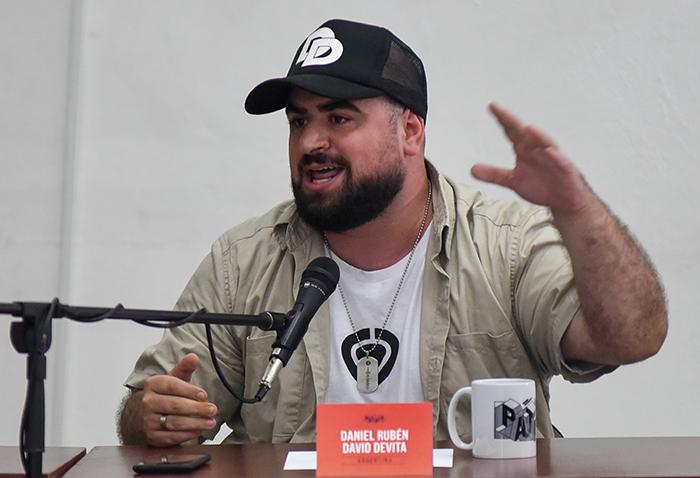
The difficult months during the COVID-19 pandemic forced him to stay away from the stage, but he needed to stay connected with his followers: social networks were the ideal space.
Something caught his attention. On all platforms, there were countless communication products, all trying to discredit Cuba, with haters misinforming about what was happening in the Caribbean country.
It was thus that Daniel Rubén David Devita decided to delve into the Cuban reality, the one in our streets and not the one they tell on the Internet. Maybe you don't know who I'm talking about, but if I call him Doble D or the People's Rapper, the Argentinean known for his lyrics on social issues and his political commitment to the liberation of the Americas, who is currently considered one of the most relevant exponents of hip hop with political content in Spanish.
Devita has more than 13,000 followers on Twitter, 133,000 subscribers on YouTube, 20,000 on Instagram and the same number on Facebook. He believes that today, artists, communicators and influencers are on the front line of the battle. That is why he fights, from digital platforms, the mother of all battles.
In 2020, the artist released the song Acá en libertad (here in freedom), in which he expresses his support for Cuba and Venezuela. Then, in 2021, paraphrasing Fidel, he released the song Bombas o medicos (bombs or doctors), dedicated to the work of Cuban health professionals around the world.
When asked about what led him to defend the Cuban reality, he said that when one wants to know the truth ones have to see where the United States stands, and always try to be in front of it, confronting it; because if you don't have it in front of you, you have it next to you.
"Where is the United States in this conflict? Financing with millions of dollars the hostile campaigns against Cuba. Where does the brother of the anti-imperialist peoples have to be? Always with Cuba."
He told this newspaper that the main figurehead of the new invasions planned by the United States everywhere, but especially in Cuba, are developed through artists of the urban genre.
For that reason, he is concerned about how much the urban genre is consumed in our country, mainly by young people. He considers it essential to look for the exponents of that music that will counteract "the discourse and the Miami mafia".
Due to his position in the safeguard of this Latin America in dispute, and his lyrics denouncing the anomalies of the system, the singer is constantly harassed. "I, in that sense, take it as a very hopeful fact; I would worry if with so much work we do, we did not generate that hatred," he confesses.
He believes that "the challenge is not to invent anything new, but to see how what we are already doing is becoming more efficient, massive and fast".
Translated by ESTI








